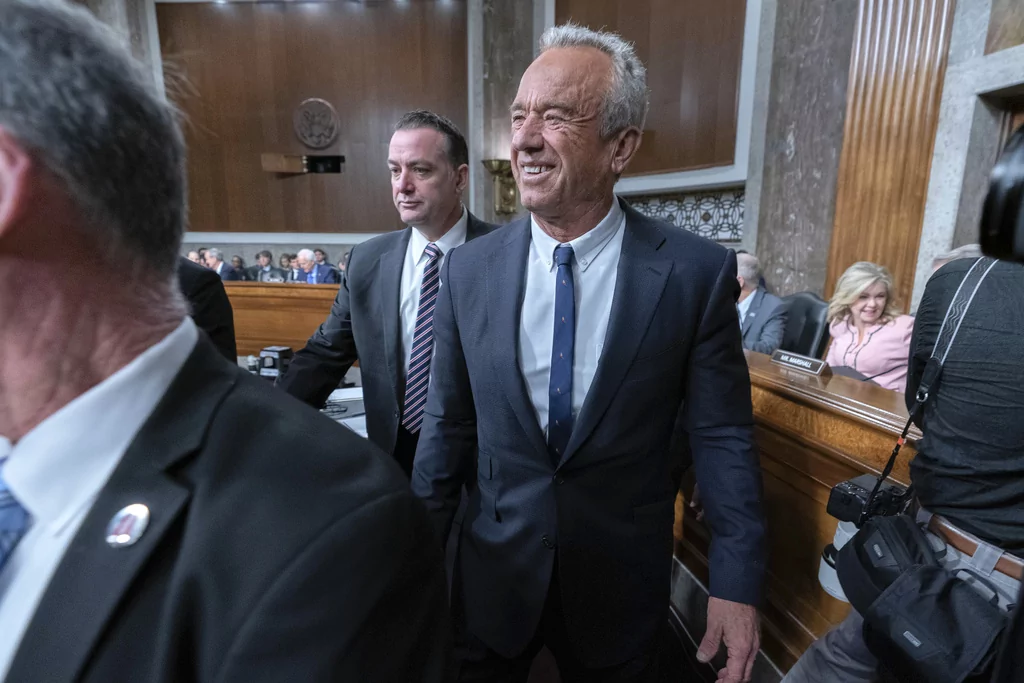


Despite his historic wariness of the pharmaceutical industry, Robert F. Kennedy Jr.’s stance toward weight-loss drugs appears to be softening.
In December 2024, President Donald Trump’s nominee to lead the Department of Health and Human Services asserted that GLP-1 medications such as Ozempic and Mounjaro “have a place” in treating obesity. In his recent Senate confirmation hearings, Kennedy touted the effectiveness of GLP-1s, calling them “miracle drugs.” He’s right — just ask George Barlow.
Barlow, 78, a retired attorney in Fort Worth, Texas with a history of prediabetes and heart disease, weighed nearly 300 pounds when his physician prescribed him a GLP-1. The medication worked and Barlow lost nearly 50 pounds. In an interview with the Wall Street Journal, Barlow happily reported that slimming down “maintains my ability to get out and socialize.”
Medicare covered Barlow’s medication, but he is unique among seniors, the vast majority of whom cannot access these life-changing treatments. Popular GLP-1’s on the market can cost hundreds of dollars per month, a steep barrier for seniors living on a fixed income. Unfortunately, Medicare is forbidden to cover weight loss drugs for obesity unless patients possess another medical condition such as diabetes or cardiovascular disease.
This policy prevents millions of seniors, nearly 42% of whom were medically obese in 2022, from accessing life-altering and, in some cases, lifesaving treatments.
While some argue that changing the current policy and allowing Medicare to cover weight loss drugs will drive up spending on the Medicare program, not acting comes with its own significant price tag.
According to the Bipartisan Policy Center, lifetime costs of obesity for a 65-year-old adult were $22,670 as recently as 2020. Extrapolating out the costs based on the population of Medicare recipients that have obesity, that’s a total of $524 billion in lifetime Medicare spending. Because of the immense strain obesity puts on the healthcare system, a reduction in obesity would deliver massive savings to taxpayers.
Then there’s the issue of safety. The lack of coverage for GLP-1s is causing patients to turn to compounded versions of these medicines despite the FDA’s warning that “compounded drugs pose a higher risk to patients than FDA-approved drugs.” This exposes patients to serious safety risks from illegal actors, many of whom are from China and other foreign countries, who seek to profit off Americans by taking advantage of the high demand and short supply to sell substandard and fake versions.
Trump and Kennedy campaigned on a promise to make America healthy again. Soon, the president and his HHS pick, if confirmed, will have an opportunity to take a critical first step in their quest to end chronic disease.
A proposed rule by the Centers for Medicare and Medicaid Services would end Medicare’s prohibition on covering drugs used explicitly for weight loss. This proposal reflects a modern recognition among medical experts and policymakers that obesity is a disease. It also comes amid high and growing demand for a relatively new class of highly effective and safe treatment, which wasn’t the case when the regulation was implemented.
There are a multitude of reasons to be excited about this proposal. For Medicare recipients, it unlocks access to a safe and proven treatment for weight loss that seniors have been historically unable to afford. It empowers more people to take back control over their health by losing weight and reducing their risk of obesity-related chronic disease. According to a study by the USC Schaeffer Center for Health Policy and Economics, it could also save taxpayers as much as $245 billion over the next decade by reducing demand for hospital care and skilled nursing.
CLICK HERE TO READ MORE FROM THE WASHINGTON EXAMINER
Making America healthy again is about offering people more choices and more transparency into what we’re putting into our bodies to both fuel and treat them. Data show that when on GLP-1s, cravings for unhealthy food can go away. That’s why these obesity medications are an important, safe tool individuals and doctors can deploy to improve individual health and well-being.
Authorizing Medicare to cover weight loss drugs for obesity helps advance the new White House’s vision for a healthier America. The Trump administration would be wise to approve the CMS’s proposed rule. Millions of seniors will benefit.
Saul Anuzis is the president of the 60 Plus Association.
